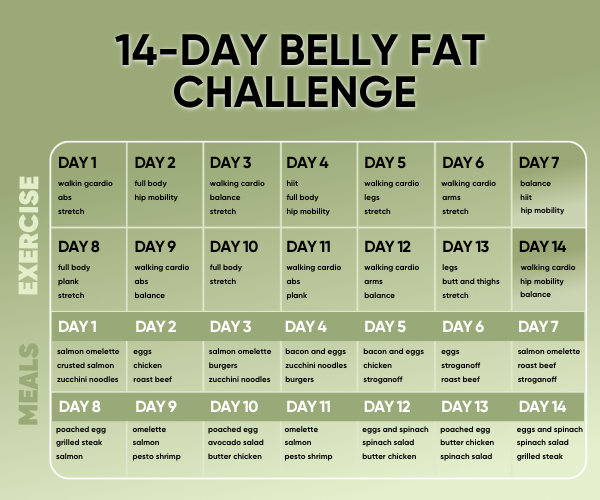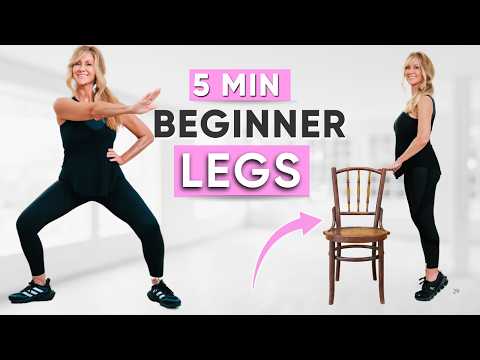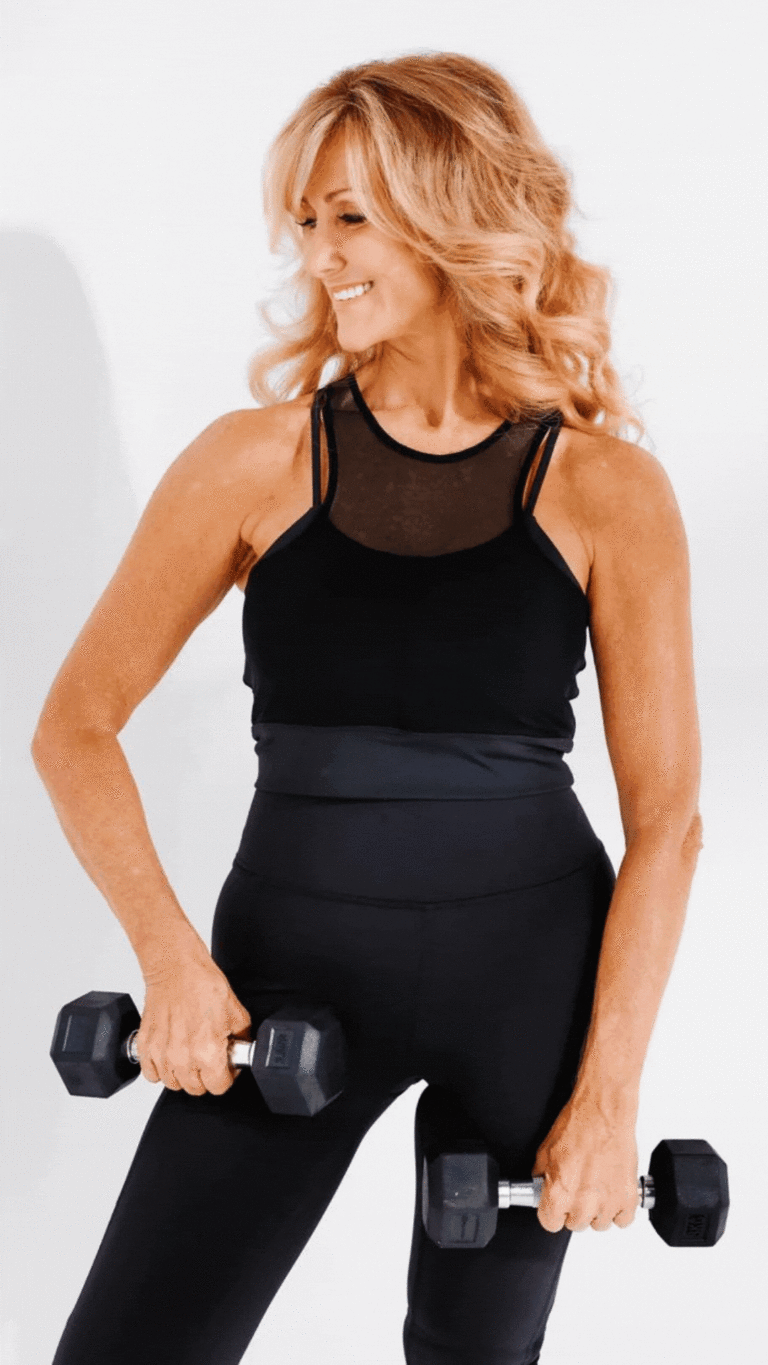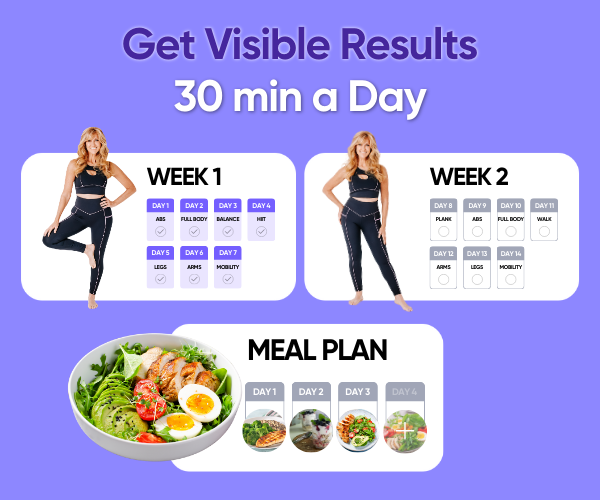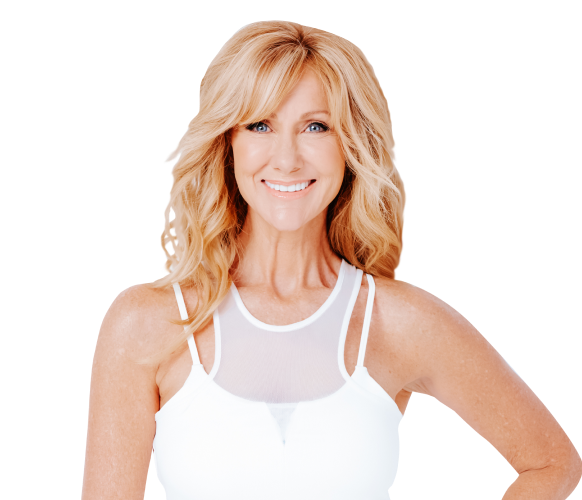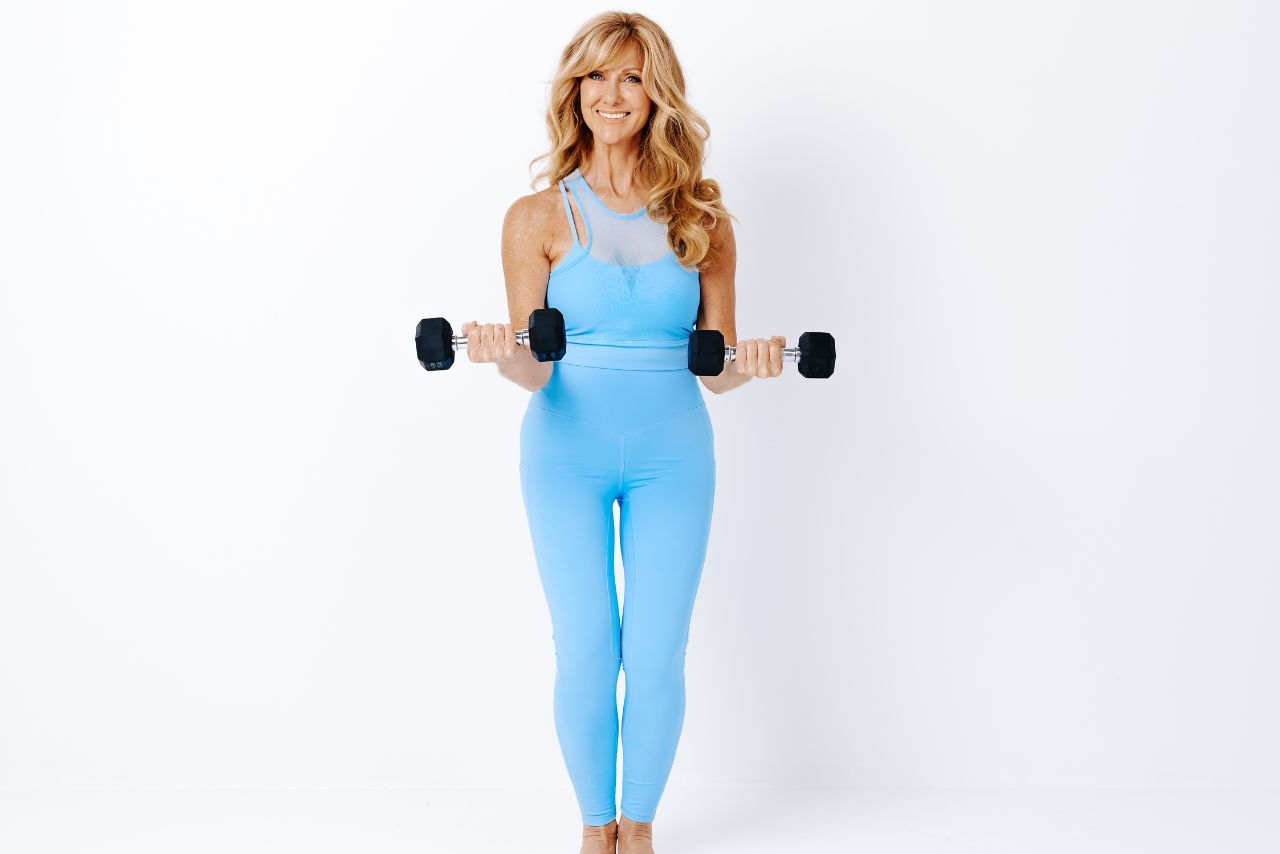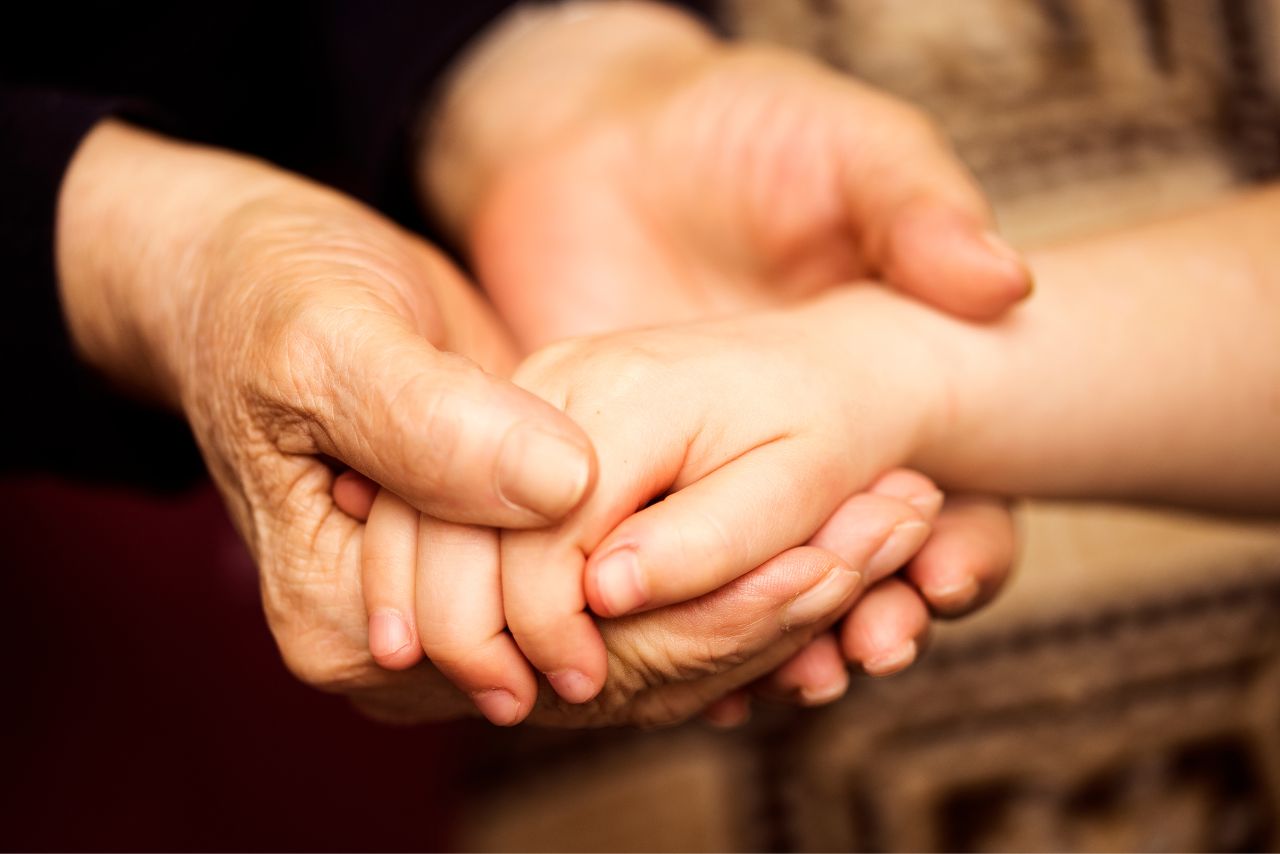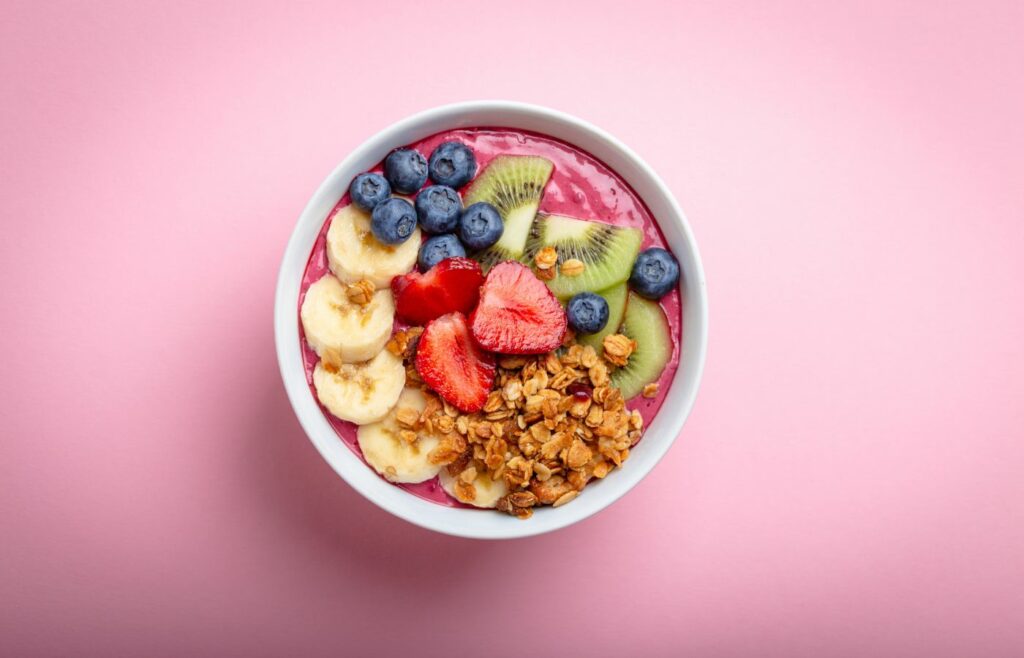
Nutrition during menopause is essential. As your body goes through hormonal changes, you may gain weight, especially around the abdomen. Thus, paying close attention to your menopause diet is essential for risk management and good health.
A balanced menopause diet can reduce a wide range of menopausal symptoms, including hot flashes, mood swings, and insomnia. In fact, nutrient-dense foods rich in vitamins, minerals, and antioxidants can also improve health and reduce the risk of chronic diseases. Proper nutrition also helps maintain a healthy weight, which prevents obesity-related health issues and improves quality of life.
With these in mind, let’s take a look at the best foods to eat (or avoid) during menopause.
10 Foods to Include in a Menopause Diet
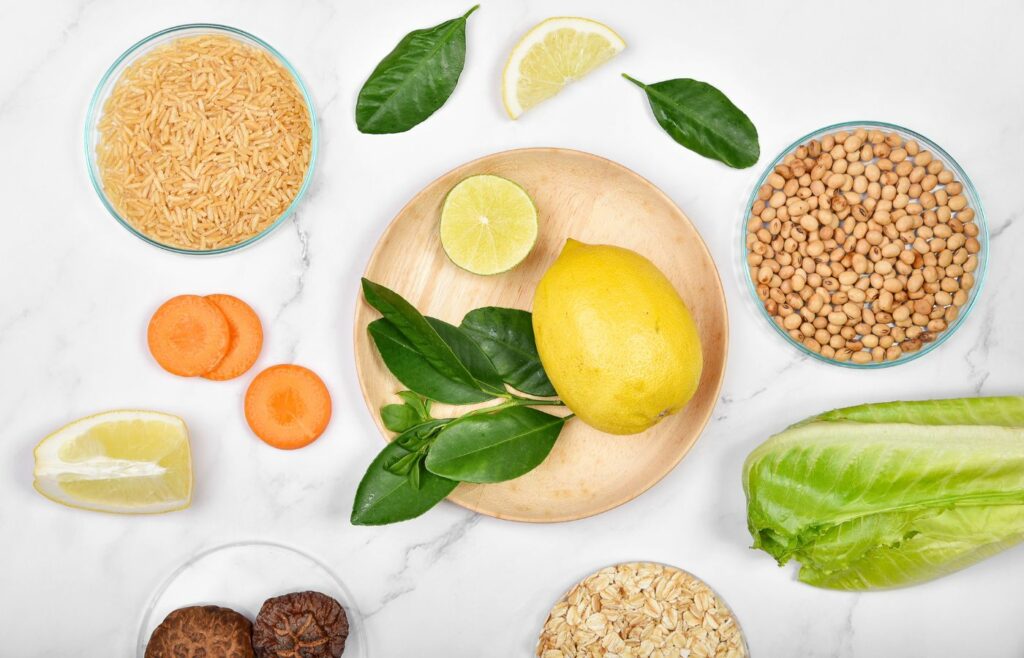
1. Whole Grains
Whole grains like brown rice, quinoa, and whole wheat are great sources of fiber, vitamins, and minerals. They can help control blood sugar levels, lower the chance of getting heart disease, and make digestion easier. Consume a wide variety of whole grains if you want to get the most out of eating them.
Oats, barley, bulgur, whole grain bread, whole grain pasta, buckwheat, millet, rye, sorghum, farro, freekeh, kamut, and wild rice are all other foods that contain whole grains.
2. Fruits and Vegetables
Fruits and vegetables are full of nutrients, antioxidants, and fiber that your body needs. They can help lower the risk of heart disease, protect against some cancers, and help the body digest food better. Aim to eat a variety of colorful fruits and vegetables every day, like berries, leafy greens, and cruciferous vegetables like broccoli and cauliflower.
3. Healthy Fats
Healthy fats, like those in avocados, nuts, seeds, and olive oil, are important for making hormones, keeping the brain healthy, and keeping the body in general good health. They can also help reduce inflammation, which is good for women going through the symptoms of menopause. Make sure you eat a healthy amount of healthy fat every day.
4. Lean Protein
Lean protein, such as chicken, turkey, fish, beans, and legumes, is essential for maintaining muscle mass, promoting a healthy metabolism, and supporting bone health. Include a variety of lean protein sources in your diet to meet your daily protein needs.
5. Calcium-Rich Foods
Calcium is very important for keeping bones strong and lowering the risk of osteoporosis during menopause. Eat foods like dairy products, leafy greens, and plant-based milk that have been fortified to get enough calcium.
Calcium-rich foods include milk, cheese, yogurt, kale, collard greens, turnip greens, spinach, broccoli, canned sardines and salmon with bones, tofu made with calcium sulfate, almonds, sesame seeds, chia seeds, navy beans, white beans, chickpeas, lentils, calcium-fortified orange juice, cereals, and plant-based milks.
READ ALSO: 10 Surprising Foods That Hinder Weight Loss After 50
6. Soy and Soy Products
Isoflavones help ease hot flashes and other menopause symptoms. These plant-based sources of protein can also help keep your heart healthy and your bones strong.
Isoflavone-rich foods include soybeans, tofu, tempeh, soy milk, edamame, chickpeas, lentils, kidney beans, black beans, red clover, alfalfa sprouts, mung bean sprouts, sunflower seeds, sesame seeds, wheat, barley, rye, and oats.
Keep in mind that preparation and processing can affect isoflavone levels in these foods. Instead of highly processed versions like soy protein isolate or soy sauce, it’s always best to eat these foods in their whole, natural forms.
7. Omega-3 Fatty Acids
Omega-3 fatty acids are found in fatty fish like salmon, mackerel, and sardines, as well as in walnuts, flaxseeds, and chia seeds. They can help reduce inflammation, improve brain function, and keep the heart healthy. Make sure you eat foods that are high in omega-3s on a regular basis.
You can get omega-3s from supplements, but getting them from food is always the best option. Food sources of omega-3s include fish like salmon, mackerel, and tuna, as well as vegetarian sources like flax seeds and chia seeds.
READ ALSO: Top 10 Menopause Supplements for Women over 50
8. Vitamin D
Vitamin D is important for the body to absorb calcium and keep bones healthy. During menopause, estrogen levels drop, which makes vitamin D even more important. Add vitamin D-rich foods like fatty fish, egg yolks, and fortified dairy to your diet, and talk to your doctor about taking a supplement.
9. Magnesium
Magnesium is an important mineral that can help you sleep better, feel less anxious, and ease symptoms of menopause like hot flashes. Eat foods like almonds, spinach, and beans that are high in magnesium to get the most out of it.
10. Phytoestrogen-rich foods
Phytoestrogens are chemicals found in plants that can act like estrogen in the body. This can help menopausal women with hot flashes or dryness in the vaginal area. Soy products, flaxseeds, and legumes are all good sources of phytoestrogens.
It has been found that eating foods like broccoli and cauliflower, as well as dark berries, chickpeas, and soybeans, can help mimic estrogen and reduce some of the symptoms that are associated with menopause.
READ ALSO: Ways To Deal With Menopause Weight Gain
10 Foods to Avoid During Menopause
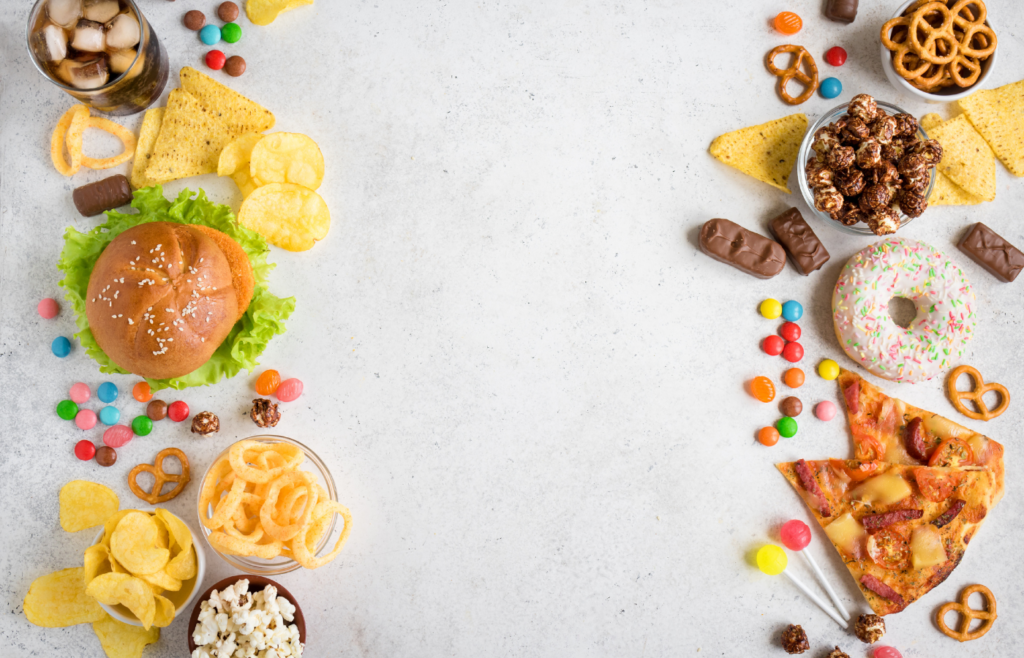
1. Refined Carbohydrates
Refined carbohydrates can cause mood swings and weight gain due to blood sugar fluctuations. Refined carbohydrates include white bread, pasta, and pastries.
Whole grains, on the other hand, are a superior option when it comes to nutrient and fiber content, so you should opt for those.
2. Sugary Drinks and Snacks
Drinks and snacks that are high in sugar, such as soda and candy, have been linked to weight gain as well as an increased risk of heart disease and type 2 diabetes. This is especially true for children, who consume these beverages and snacks on a regular basis.
It is recommended that you try to cut back on the amount of these foods and beverages that you consume and opt instead for healthier options such as water, herbal tea, and fresh fruit.
3. Alcohol
Alcohol has been shown to make symptoms of menopause, such as hot flashes and irritability, worse. Additionally, it has been shown to disrupt sleep and contribute to weight gain. During menopause, it is best to cut back on your alcohol consumption or abstain completely.
4. Caffeine
Caffeine is known to make menopausal women have hot flashes, have trouble sleeping, and feel more anxious. You should drink less coffee, tea, and soda, which all have caffeine, and switch to drinks that don’t have caffeine instead.
READ ALSO: How You Can Find Balance During Menopause Over 50
5. Spicy Foods
Spicy foods can trigger hot flashes in some women. If your symptoms get worse after you eat spicy foods, you might want to cut back or stop eating them altogether.
6. High-Sodium Foods
High-sodium foods can make you retain water and make you feel bloated. You should try to cut back on the amount of processed foods, fast food, and salty snacks you eat and instead focus on eating fresh, whole foods.
7. Saturated and Trans Fats
Saturated and trans fats, which are found in fatty meats, dairy products with full fat, and processed foods, have been linked to a higher risk of heart disease. Choose fats that are lower in saturated and trans fats, such as those found in olive oil, nuts, and seeds.
8. Processed Meats
Processed meats like hot dogs, sausages, and deli meats have a lot of salt and fats that aren’t good for you. Both of these things can lead to health problems like weight gain, heart disease, and other conditions. Instead, choose fish, chicken, or turkey, which are leaner sources of protein.
9. Excess Dairy Products
Even though dairy products are a good source of calcium, eating too much of them can cause stomach problems and hormonal imbalances. Cut down on the amount of dairy you eat and think about switching to alternatives like almond or soy milk.
READ ALSO: Lose Weight Fast With This Shockingly Effective Trick! It’s Easier Than You Think
10. Fast Food
Fast food often has unhealthy fats, a lot of salt, and a lot of sugar, all of which can make you gain weight and make you more likely to get chronic diseases. Instead, you should eat home-cooked meals and whole, nutrient-dense foods.
Staying Hydrated to Manage Menopausal Symptoms
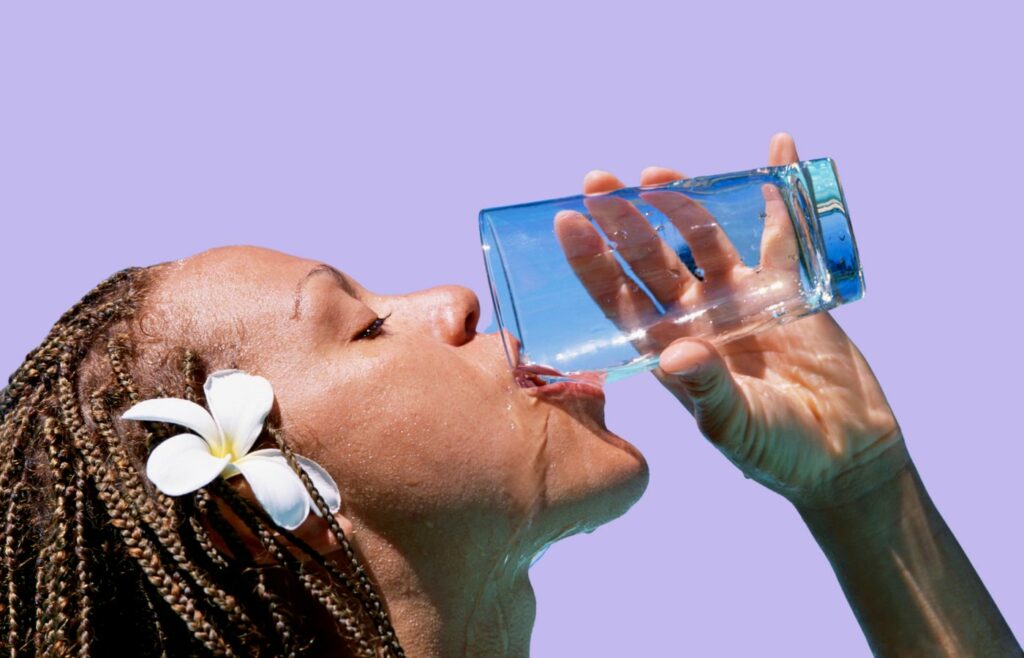
Hydration during menopause is essential for overall health and symptom management. Drinking enough water can balance up your menopause diet. It also helps regulate body temperature, reduce hot flashes, and support digestion.
Keep hydrated with these tips:
- Drink 8–10 glasses of water daily. If you exercise or live in a hot climate, you may need more.
- Carry a water bottle to remind yourself to drink water throughout the day.
- To stay hydrated, choose water-rich foods like fruits and vegetables.
- Avoid dehydrating diuretics like caffeine and alcohol.
- Instead of plain water, try herbal teas or fruit-infused water.
Staying Healthy During Menopause

For a healthy diet during menopause, it is best to stick to a DASH or Mediterranean-style diet that is full of fruits, vegetables, whole grains, nuts, and seeds. This is the same advice that is given at other times in life.
If you don’t know what you’re eating, talk to a doctor to find out if you need to take supplements, since many women may not be getting enough vitamin D and calcium.
But be careful with supplements that claim to balance hormones, reduce hot flashes, or speed up your metabolism. Talk to a doctor first. There are many ways to treat menopause symptoms, including hormone replacement therapy.
Don’t forget to exercise! Maintaining muscle mass and bone density requires 30 minutes of exercise five days a week and two days of strength training. Yoga and stretching reduce stress and increase flexibility.
Closing Thoughts
A healthy lifestyle helps women manage menopause symptoms and stay healthy.
A healthy menopause diet focuses on incorporating nutrient-rich foods that provide essential vitamins, minerals, and antioxidants to help balance hormones, support bone health, and maintain an ideal weight.
You can make menopause easier and improve your quality of life by adopting healthier habits and paying attention to nutrition.
Always remember that a balanced menopause diet is not just a fad, but a powerful source that can help you take control of your life and redefine your menopause journey for the better!
♡ Love ♡,
Schellea

